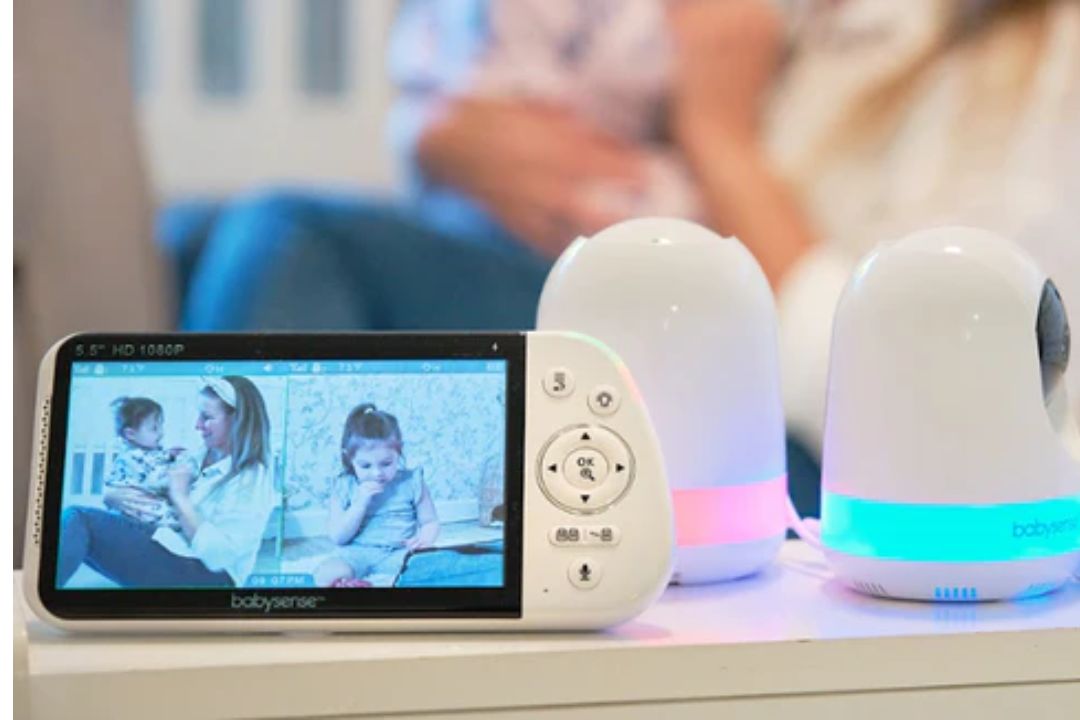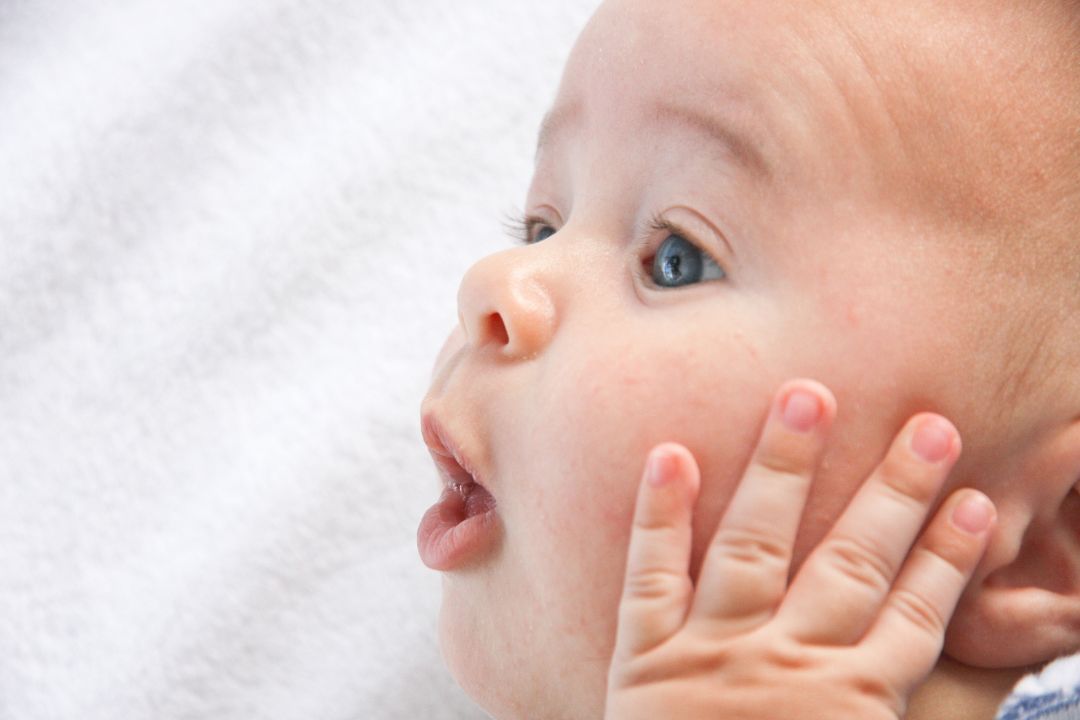Is a baby monitor necessary? As a first-time parent, you're probably buying dozens of new products, and you may have been wondering whether it's worth buying a baby monitor.
The truth is, not all parents will need a baby monitor. However, it can be a true lifesaver for many and allow you to observe your newborn and stay attentive to their needs without neglecting your other responsibilities.
Why a Baby Monitor Is Useful
Let's go over a few ways a baby monitor can help parents. If any of these apply to you, you should seriously consider buying a baby monitor.
You Sleep in a Different Room
If your baby is still sleeping in your room, you may not need a baby monitor. After all, you're close enough to observe them from your bed, and you'll probably wake up when they cry.
On the other hand, if your child is sleeping in a separate room, a baby monitor is a must-have. It allows you to get your rest without needing to check on your child periodically.
As a parent, you need that rest. Otherwise, you'll get burnt out, and you won't be able to give your infant the care it needs.
You Are a Deep Sleeper
If you're an extremely light sleeper, a baby monitor is not as critical, even if your child sleeps in another room. But, if you are a deep sleeper, a baby monitor is vital. Otherwise, you're likely to sleep through their cries and wails.
Your Apartment Is Big
The larger your apartment or house is, the more a baby monitor becomes a necessity. In a small apartment with just one or two rooms, you can usually go about your day without getting out of range of your child. If they cry, you'll hear them, even while cooking in the kitchen.
In larger houses, however, you run the risk of neglecting your child as they cry. Baby monitors aren't just for nighttime. You should observe your infant at all times, including during their daytime naps.
The Baby Wakes Up When You Enter
Some babies sleep soundly, and you can enter their room and check on them without rousing them. Other infants, however, are such light sleepers that when you enter to see how they're doing, they'll immediately awaken.
If your child falls into the latter category, consider getting a baby monitor. You won't have to enter their room and wake them up anymore to make sure they're okay.
You Work At Home
If you work at home or are a “mompreneur,” I strongly recommend purchasing a baby monitor. It doesn't matter whether you work remotely, own an e-commerce store, give classes online, or do anything else.
You may not be able to interrupt your work now and then to enter your child's room. However, you can keep the video monitor next to your computer, so you can watch what they are doing and help them as necessary.
There Are Household Chores Waiting For You
A baby monitor is an excellent option if you need to do household chores like:
- Wash the laundry
- Wash the dishes
- Cook
- Bake
- Take care of some gardening
- Or anything else around the house
You can get a battery-powered baby monitor, so you can take it with you wherever you go in the house. A baby monitor allows you to stay productive, keep your home in order, and take care of your newborn all at the same time.
You Have Family Members in Different Time Zones
Another instance in which a baby monitor might be helpful is if you have family members in different time zones who can help watch your child. You may need to set up a webcam so that they can view the monitor stream.
It's a terrific way to get the sleep you need while knowing your child will get their needs met too. For example, if you have family members in Europe or Asia, they may be able to observe your baby while you sleep, whether at night or for your daytime nap. It must be someone you trust not to forget to watch the screen, and they should call you if your baby requires attention. Keep your phone on.
You Have Anxiety About Your Child
It's entirely normal for moms, especially first-timers, to have a lot of anxiety about their infants. Many mothers find it tough to fall asleep at night when their babies are sleeping in another room. Others feel the need to rush in every few minutes to check on them.
However, visiting your child's room every few minutes isn't a viable course of action. It makes a lot more sense to simply get a baby monitor. That way, you can view what your child is doing and stay relaxed, secure in the knowledge that they're okay.
You Want To Find Out Why Your Kid Has Difficulty Falling Asleep
Some babies tend to have a rough time dozing off. While giving them some quiet time is vital so that they can get some rest, it's also crucial to understand the reasons behind your baby fighting sleep, with common causes including:
- Hunger
- Being too tired
- Having separation anxiety
Observing your baby can give you some clues as to why they're staying awake. For example, if they are licking their lips and sucking their fingers, they might be hungry. In that case, consult with your doctor about changing your baby's feeding regimen.
The best way to observe your baby without actually being there is by using a video baby monitor.
You Want To Help Your Child Sleep
Some monitors go a step further and let you play white noise to help your child sleep. Playing white noise is a great way to relax your baby and soothe them so they fall asleep. Some monitors even let you play gentle lullabies.
Some monitors allow you to talk to your baby from another room. If your child is suffering from separation anxiety that prevents them from sleeping, you might want to consider using a two-way monitor. It not only transmits noise from your baby's room to yours but the other way around as well.
When your child hears your voice, it will soothe their anxiety. You can sing to them, talk to them, tell them a story, call them by their name, and more.
You Are Worried Your Baby Has Apnea
Many parents also worry that their baby might have apnea. Apnea is when your baby's breathing pauses for more than 15-20 seconds.
It's normal for babies to have periodic breathing, where there are breathing pauses for 10 seconds or less. However, once you get into the 15-20 second range, you might want to consider bringing your child to a doctor, so they can decide if treatment is necessary.
To be clear, apnea is NOT the same thing as SIDS (Sudden Infant Death Syndrome). Most infants outgrow apnea. Its exact cause can vary, ranging from neurological problems to brain immaturity.
There are special monitors created just for tracking your infant's breathing. These monitors are highly sensitive and can differentiate between breathing and other environmental noises.
They will alert you when your baby stops breathing, if its breathing has slowed down, or if your baby has not moved in its crib for 20 seconds. There are different types of monitors with varying levels of sensitivity. Some monitors use a camera to observe your baby, others go under the mattress, and others can be worn on articles of clothing.
If you are worried that your baby might have apnea, a breathing monitor is a great way to find out.
You Want To Observe Your Toddler
Baby monitors aren't just for newborns and babies under a year old. Many moms use them for toddlers too. You can use a video monitor to ensure your toddler is not getting into any trouble when playing in the playroom, for example, while you continue your chores. A baby monitor is a good investment that can pay off for years to come, even if you don't plan on having additional children.
You Have Two Babies
Split-screen monitors allow you to monitor two babies at once, even if they are in different rooms. Whether they are twins or of different ages, a split-screen monitor shows you both feeds on the same screen, side by side. You can't physically be in two places at once, so consider getting a monitor.
Final Thoughts
Hopefully, you now understand why video monitors are so important. There are many types of monitors available.
For example, you might get only a breathing monitor, only a video monitor, or both. Some people are okay with standard definition resolution screens, while others opt for high definition resolution monitors, making the video feed clearer and easier to make out.
Choose one that works best for you so you can continue observing your baby and providing them with exceptional care.



